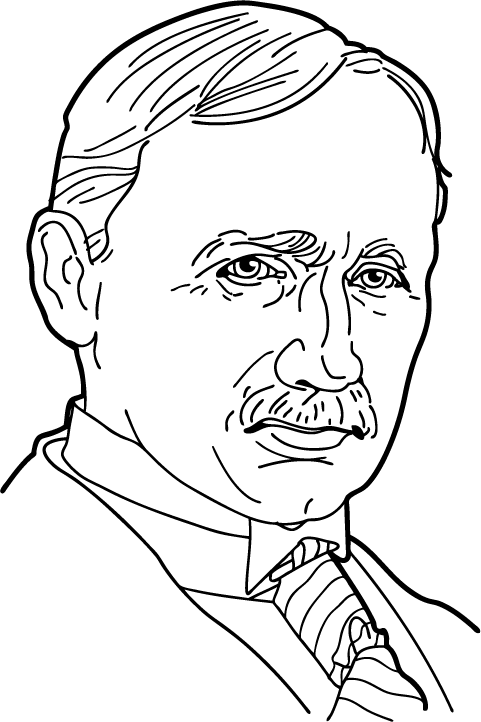Business Thinkers
1856 - 1915
Frederick Winslow Taylor

Biography
Taylor, the "Father of Scientific Management", was born into a comfortable Quaker family in Germantown, Pennsylvania. He graduated from the Stevens Institute of Technology in Hoboken, New Jersey in 1883, and was an accomplished athlete, particularly as a tennis player and golfer.
His initial recognition was as a proficient engineer who revolutionised the cutting speeds for machining steel. He then studied the process of work and concluded that work should be planned and measured, by the application of the "division of labour".
He devised "piecework" based upon time study where the sequences of work were divided into separate operations, timed and priced, and fixed as "the one best way".
He selected the most adept people and also eliminated the waste of time by idling, which he called "soldiering". Drucker credits Taylor for making the measurement of work possible and considered him more important than Marx, because Taylor's influence still lives on as he changed the way that we work, while Marx's ideas are those of the past.
Read More
BiographyStudy a Business and Management course